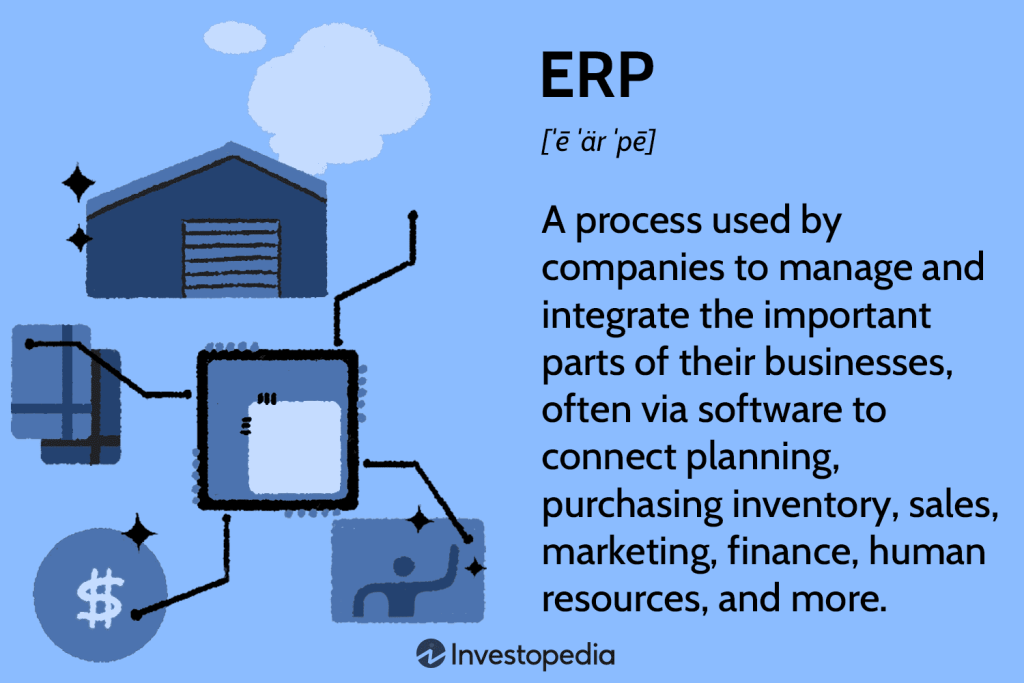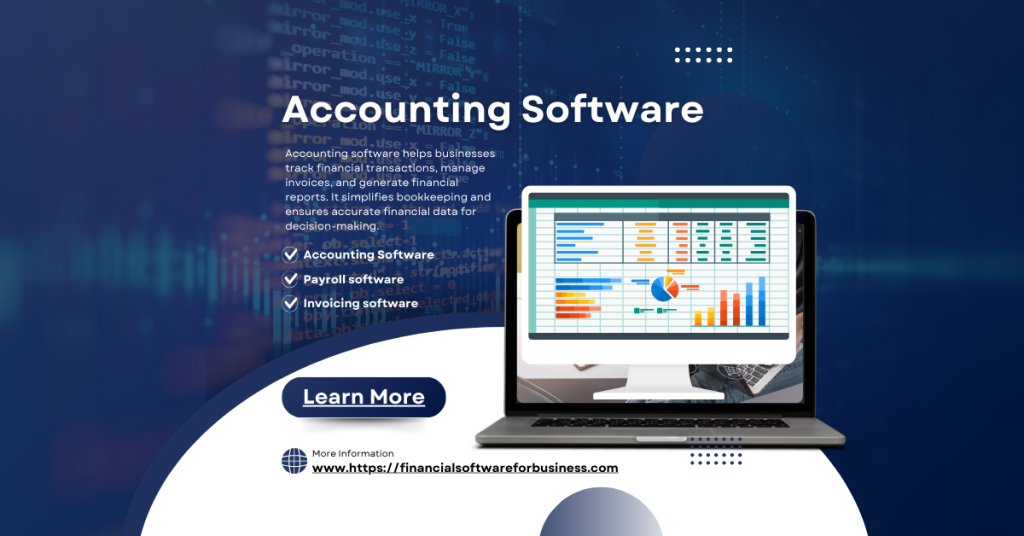ERP software stands for Enterprise Resource Planning software. It helps businesses manage their daily activities.
For many businesses, keeping track of various tasks is hard. ERP software combines different business processes into one system. This makes it easier to manage data, improve efficiency, and save time. Imagine your sales, inventory, finance, and HR all working together smoothly.
This is what ERP software does. It links and automates these functions, providing a clear view of your business operations. In this post, we will explore what ERP software is, how it works, and why it is important for businesses of all sizes. Stay with us to understand this powerful tool.
Introduction To Erp Software
ERP stands for Enterprise Resource Planning. This software helps businesses manage their core processes. These processes include finance, human resources, and supply chain. ERP software integrates all parts of a business into one system. This makes it easier to share information.
ERP software is very important for businesses. It helps improve efficiency and productivity. By using ERP software, businesses can reduce errors. This saves time and money. ERP software also helps in making better decisions. Businesses can access real-time information. This helps them stay competitive.
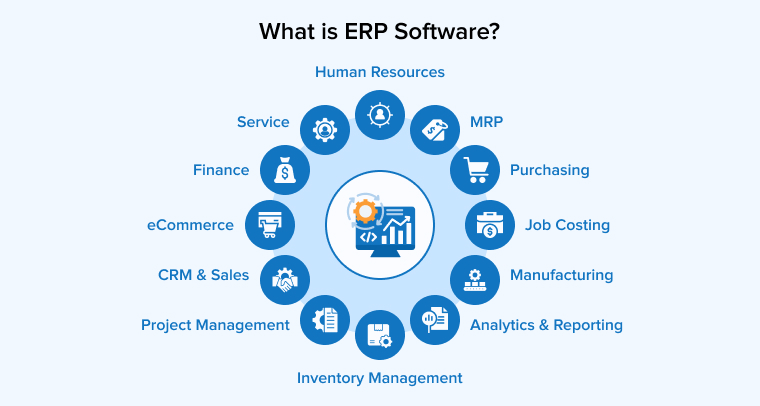
Credit: www.tatvasoft.com
Core Modules Of Erp
This module helps manage the money. It tracks all expenses and income. It also creates reports and budgets. Key tasks include billing, payments, and financial reporting. Everything is kept in one place. This makes it easier to manage finances.
This module manages employee information. It handles hiring, training, and payroll. It also tracks attendance and performance. This helps in keeping all employee data organized. It ensures employees are paid correctly and on time.
This module supports sales activities. It keeps track of customer data. It also helps in managing leads and sales orders. Marketing campaigns can be planned and tracked. This helps in reaching more customers and increasing sales.
This module manages the flow of goods. It tracks orders, inventory, and suppliers. It helps in planning production and delivery. This ensures products are available when needed. It reduces delays and improves efficiency.
Benefits Of Erp Software
ERP software helps to improve efficiency in many ways. Tasks become automated and streamlined. This reduces the time needed for manual work. Employees can focus on more important tasks. This boosts overall productivity.
Using ERP software ensures better data accuracy. It reduces errors made by humans. Data gets entered once and used in many places. This helps in making better decisions. Accurate data is always a good thing.
ERP software offers enhanced reporting features. Reports can be generated quickly. They provide insights into business activities. This helps in planning and forecasting. Better reports lead to better strategies.
Choosing The Right Erp Solution
Understand your business needs before picking an ERP solution. List the tasks you want the ERP to handle. Think about inventory, sales, HR, and customer service. Write down the problems you face now. Note the features you want. This helps find the best fit.
Make a list of ERP vendors. Look at their offerings. Check if they suit your needs. Read reviews from other users. Ask for demos. Compare the prices. See if they offer support and training. Ensure they have good customer service. This helps in making a smart choice.
Implementation Process
First, set clear goals for the ERP software. Think about what you need. Make a list of the main tasks. Next, gather a team of skilled people. They will help in different areas. This can include IT, finance, and management. Create a timeline for the project. This helps keep everything on track.
Transfer your old data to the new system. Clean the data first. Remove any errors or duplicates. This will save time later. Use tools to help with the data transfer. Check the data after the move. Make sure everything is correct.
Train your team on how to use the new system. Offer step-by-step guides. This makes learning easier. Provide ongoing support. Answer questions quickly. This helps everyone feel confident. Always update the system. Keep it running smoothly.
Common Challenges
ERP software can be expensive. Many companies worry about the initial cost. There are also ongoing maintenance fees. Training employees adds to the cost. Smaller businesses may struggle with these expenses. Budget planning is crucial. Costs should be clear from the start.
Employees may resist new software. Change is hard for many. They prefer familiar systems. Training helps reduce fear. Communication is key. Explain the benefits clearly. Show how it makes work easier. Offer support during the transition.
Technical problems can occur. Software might not work as expected. Data migration can be tricky. Integration with other systems may fail. Proper planning helps. Technical support is vital. Regular updates are necessary.
Erp Trends And Innovations
Cloud-based ERP solutions are growing. They offer flexibility and scalability. Businesses can access data from anywhere. This makes remote work easier. Cloud solutions also reduce IT costs. No need for expensive hardware. Updates are automatic. This keeps the system secure and up-to-date.
AI is changing ERP software. It helps in predictive analytics. This can improve decision-making. AI can automate repetitive tasks. This saves time and reduces errors. Chatbots help in customer support. They provide quick answers. AI can also help in demand forecasting. This makes inventory management better.
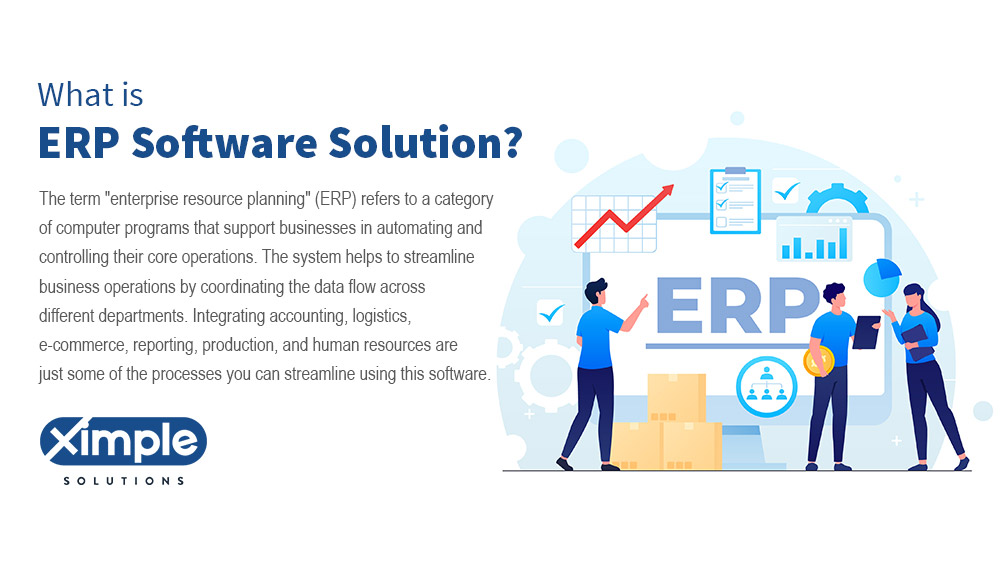
Credit: www.ximplesolution.com
Future Of Erp Software
ERP software is evolving with new technologies. AI helps in predicting trends. Machine learning improves decision making. Cloud computing offers better data storage. These technologies make ERP systems more efficient. They also reduce costs and save time.
Industries will see big changes with ERP software. More companies will move to the cloud. This makes data accessible anytime. There will be a rise in mobile ERP. Workers can use ERP on their phones. Customization will be more common. Businesses will have ERP tailored to their needs.
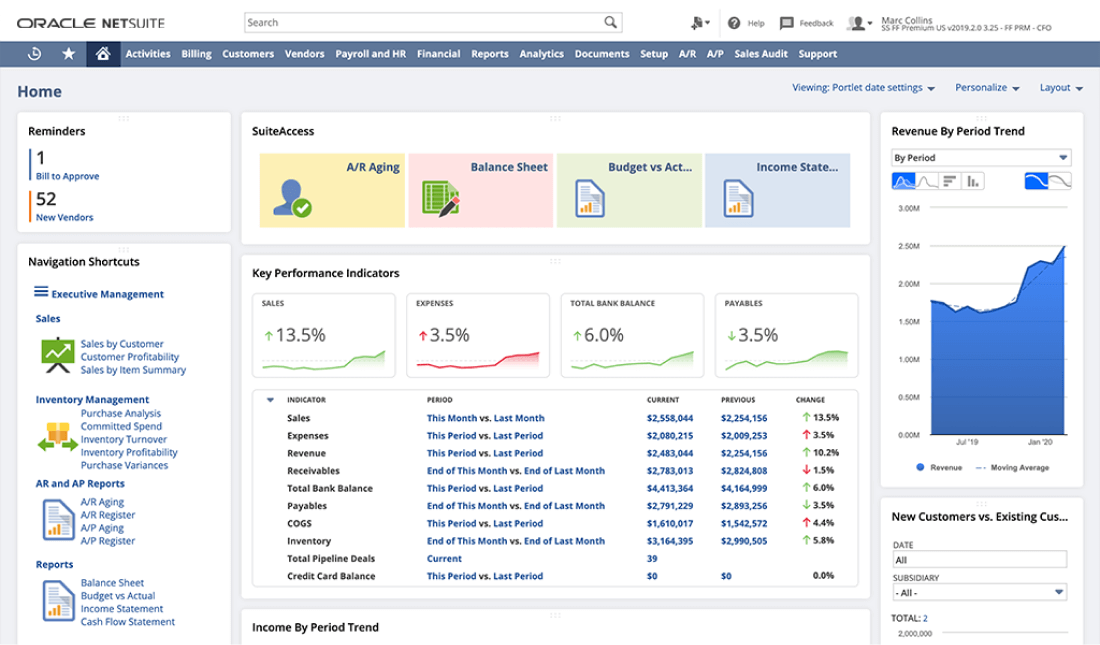
Credit: www.netsuite.com
Conclusion
ERP software simplifies business operations and boosts efficiency. It integrates various functions into one system. Companies can manage resources better and reduce costs. This software helps in making informed decisions quickly. Small and large businesses benefit from ERP solutions. Adopting ERP can lead to improved productivity and growth.
It’s a worthy investment for any business seeking streamlined processes. Understanding its features can help you choose the right solution. Embrace ERP software to stay competitive in today’s market.
